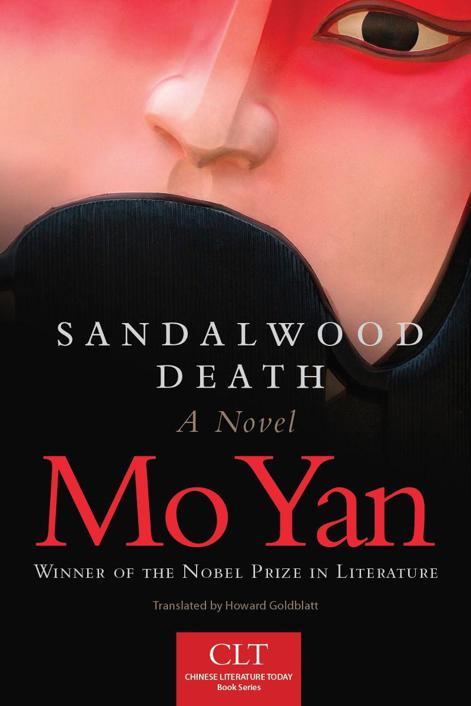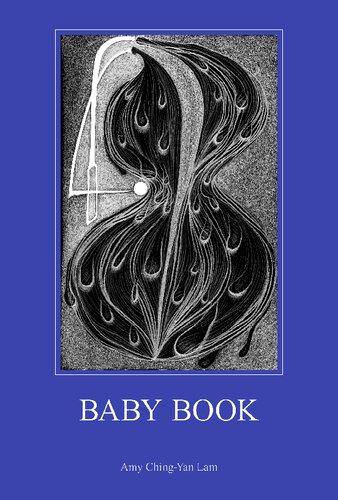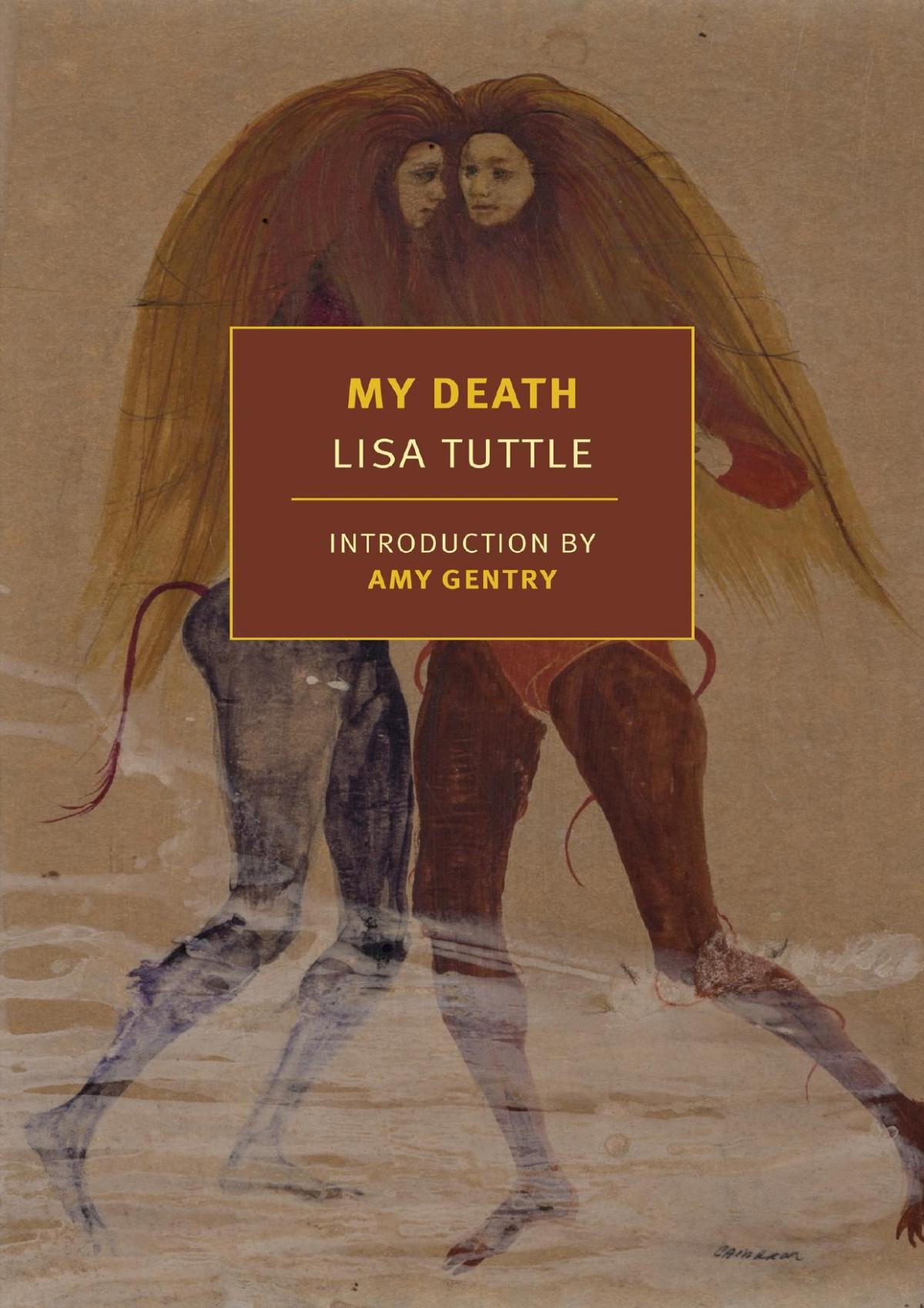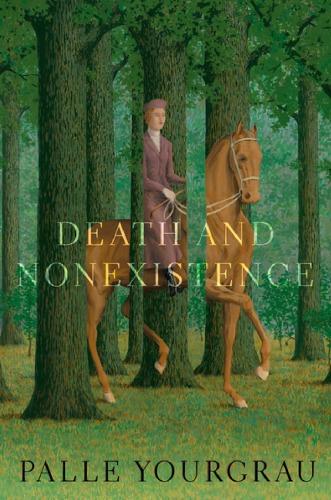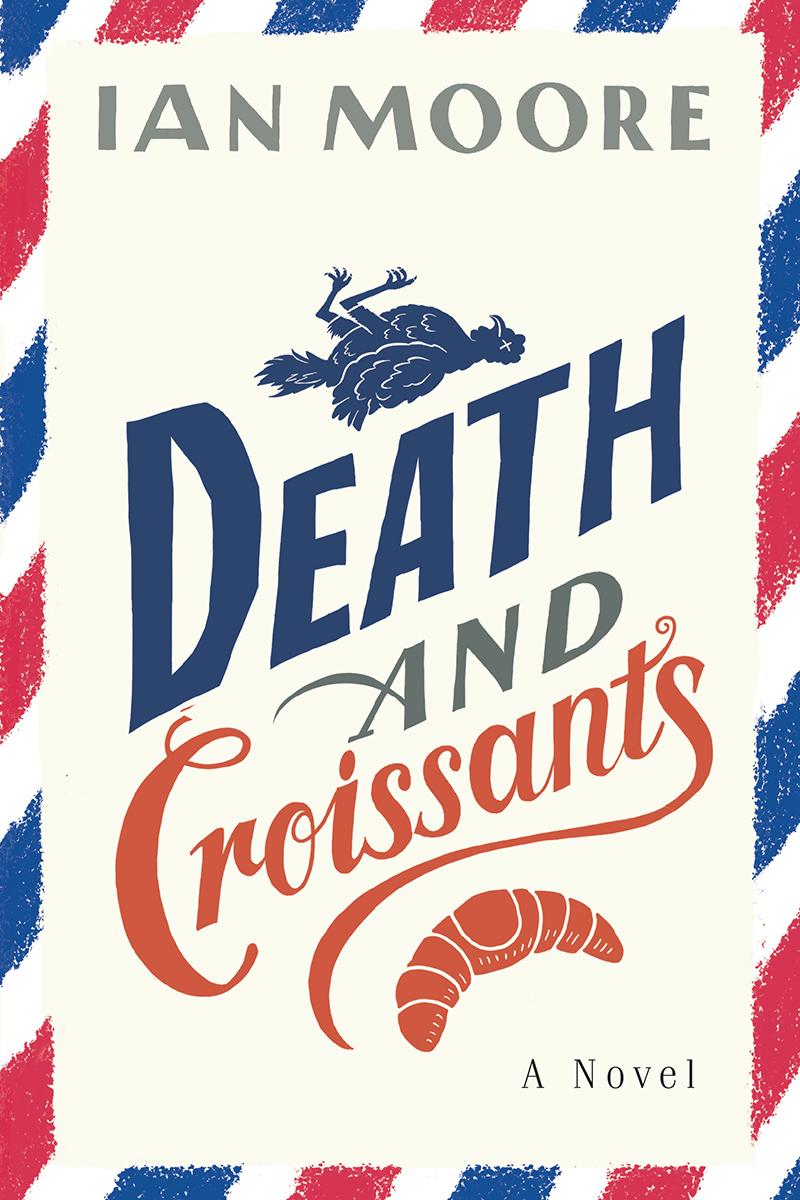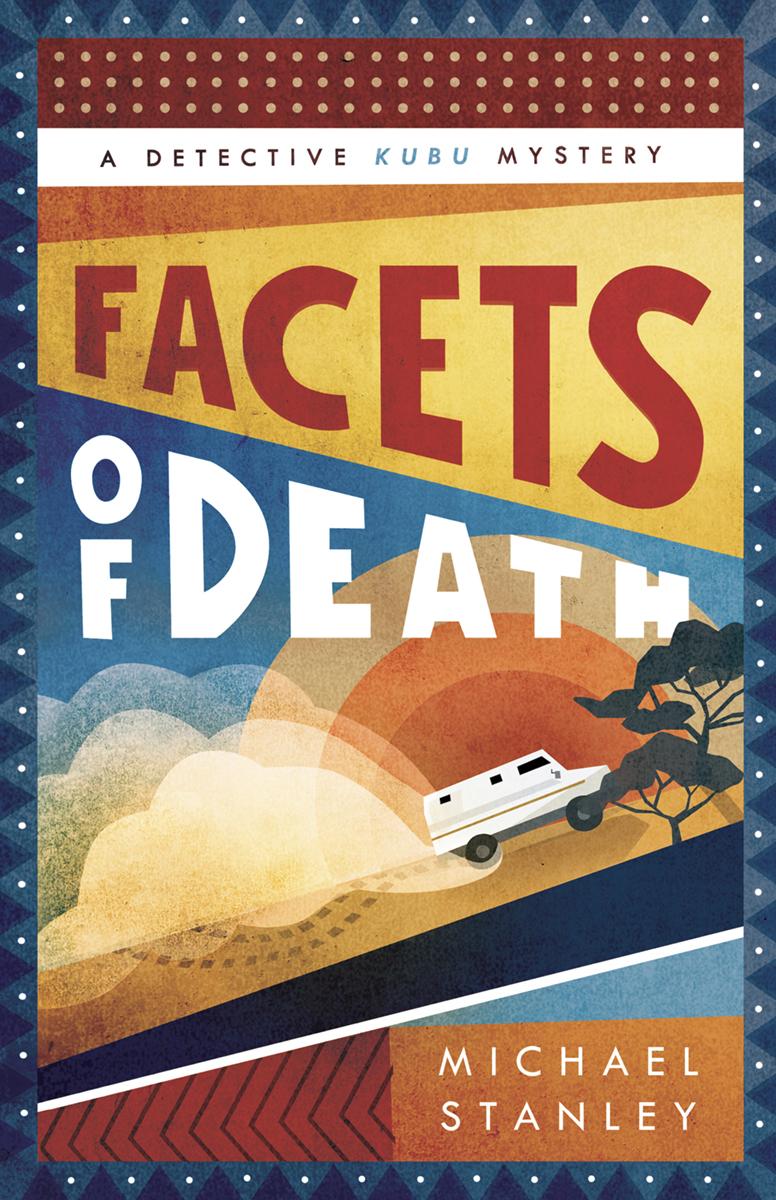CHAPTER ONE
Meiniang’s Lewd Talk
Thesun rose, abrightredball(theeasternskyaflamingpall), from Qingdao a German contingent looms. (Red hair , green eyes.)To builda raillinetheydefiledour ancestraltombs. (The people are up inarms!)My dieh led the resistanceagainst the invaders, who responded with cannon booms. (A deafening noise.) Enemies met, anger boiled red in their eyes. Swords chopped, axes hewed,spears jabbed. Thebloody battle lasted all day, leaving corpses and deathly fumes. (I was scared witless!)In theend,my diehwas taken toSouthPrison,where my gongdieh’s sandalwood death sealed his doom. (My dieh, whogavemelife!)
MaoqiangSandalwood Death. Amournfularia
1That morning, my gongdieh, Zhao Jia, could never, even in his wildest dreams, have imagined that in seven days he would die at my hands, his death more momentous than that of a loyal old dog. And never could I have imagined that I, a mere woman, would take knife in hand and with it kill my own husband’s father. Even harder to believe was that this old man, who had seemingly fallen from the sky half a year earlier, was an executioner, someone who could kill without blinking. In his red-tasseled skullcap and long robe, topped by a short jacket with buttons down the front, he paced the courtyard, counting the beads on his Buddhist rosary like a retired yuanwailang, or, better yet, I think, a laotaiye, with a houseful of sons and grandsons. But he was neither a laotaiye nor a yuanwailang—he was the preeminent executioner in the Board of
Punishments, a magician with the knife, a peerless decapitator, a man capable of inflicting the cruelest punishments, including some of his own design, a true creative genius. During his four decades in the Board of Punishments, he had—to hear him say it—lopped off more heads than the yearly output of Gaomi County watermelons. My thoughts kept me awake that night, as I tossed and turned on the brick kang, like flipping fried bread. My dieh, Sun Bing, had been arrested and locked up by County Magistrate Qian, that pitiless son of a bitch. Even if he were the worst person in the world, he would still be my dieh, and my mind was in such turmoil I could not sleep, forestalling any possibility of rest. I heard large mongrels grunting in their cages and fat pigs barking in their pens—pig noises had become dog sounds, and dog barks had turned into pig songs. Even in the short time they had left to live, they were tuning up for an opera. If a dog grunts, it is still a dog, and when a pig barks, it remains a pig. And a dieh is still a dieh, even if he does not act like one. Gruntgrunt,arfarf. The noise drove me crazy. They knew they would be dead soon. So would my dieh. But animals are smarter than humans, for they detected the smell of blood that spread from our yard, and could see the ghosts of pigs and dogs that prowled in the moonlight. They knew that daybreak, soon after the red rays of sun appeared, would mark the hour that they went to meet Yama, the King of Hell. And so they set up a yowl—the plaintive call of impending death. And you, Dieh, what was it like in your death cell? Did you grunt? Bark? Or did you sing Maoqiang? I heard jailers say that condemned prisoners could scoop up fleas by the handfuls in their cells and that the bedbugs were as big as broad beans. You had lived a steady, conservative life, Dieh, so how could a rock one day fall from the sky and knock you straight into a death cell? Oh, Dieh . . .
The knife goes in white and comes out red! No one is better at butchering dogs and slaughtering pigs than my husband, Zhao Xiaojia, whose fame has spread throughout Gaomi County. He is tall and he is big, nearly bald, and beardless. During the day he walks in a fog, and at night he lies in bed like a gnarled log. Since the day I married him, he has badgered me with his mother’s tale of a tiger’s
whisker. One day some roguish creature goaded him into pestering me to obtain one of those curly golden tiger whiskers that, when held in the mouth, confer the ability to see a person’s true form. The moron, more like a rotting fish bladder than a man, badgered me all one night, until I had no choice but to give in. Well, the moron curled up on the kang and, as he snored and ground his teeth, began to talk in his sleep: “Dieh Dieh Dieh, see see see, scratch the eggs, flip the noodle . . .” He drove me crazy. When I nudged him with my foot, he curled up even tighter and rolled over, smacking his lips as if he’d just enjoyed a tasty treat. Then the talk started again, and the snoring and the grinding of teeth. To hell with him! Let the dullard sleep!
I sat up, leaned against the cold wall, and looked out the window, to see watery moonlight spread across the ground. The eyes of the penned dogs glistened like green lanterns—one pair, another, a third . . . a whole stream of them. Lonely autumn insects set up a desolate racket. A night watchman clomped down the cobblestone street in oiled boots with wooden soles, clapper beats mixed with the clangs of a gong—it was already the third watch. The third, late-night, watch in a city where everyone slept, everyone but me and the pigs and the dogs and, I’m sure, my dieh.
Kip kip kip, a rat was gnawing on the wooden chest. It scampered off when I threw a whiskbroom at it. Then I heard the faint sound of beans rolling across a table in my gongdieh’s room. I later discovered that the old wretch was counting human heads, one bean for each detached head. Even at night the old degenerate dreamed of heads he had chopped off, that old reprobate . . . I see him raise the devil’s-head sword and bring it down on the nape of my dieh’s neck; the head rolls down the street, chased by a pack of kids who kick it along until it rolls into our yard after hopping up the gate steps in an attempt to escape. It then circles the yard, chased by a hungry dog. Experience has told Dieh’s head that when the dog gets too close—which it does several times—the queue in back lashes it in its eye, producing yelps of pain as it runs in circles. Now free of the dog, the head starts rolling again and, like a large
tadpole, swims along, its queue trailing on the surface, a tadpole’s tail . . .
The clapper and gong sounding the fourth watch startled me out of my nightmare. I was damp with cold sweat, and many hearts —not just one—thudded against my chest. My gongdieh was still counting beans, and now I knew how the old wretch was able to intimidate people: his body emitted breaths of shuddering cold that could be felt at great distances. In only six months he had turned his room, with its southern exposure, into an icy tomb—so gloomy the cat dared not enter, not even to catch mice. I was reluctant to step inside, since it made me break out in gooseflesh. But Xiaojia went in whenever he could and, like a snotty three-year-old, stuck close to his storytelling dieh. He hated to leave that room, even to come to my bed during the hottest days of the year, in effect switching the roles of parent and spouse. In order to keep unsold meat from going bad, he actually hung it from the rafters in his dieh’s room. Did that make him smart? Or stupid? On those rare occasions when my gongdieh went out, even snarling dogs ran off as he passed, whining piteously from the safety of corners. Tall tales about the old man were rampant: people said that if he laid a hand on a cypress tree, it shuddered and began to shed its leaves. I was thinking about my dieh, Sun Bing. Dieh, you pulled off something grand this time, like An Lushan screwing the Imperial Concubine Yang Guifei, or Cheng Yaojin stealing gifts belonging to the Sui Emperor and suffering grievously for it. I had thoughts of Qian Ding, our magistrate, who had claimed success at the Imperial Examination, a grade five official, almost a prefect, what’s known as a County Magistrate; but to me, this gandieh, my so-called benefactor, was a double-dealing monkey monster. The adage goes, “If you won’t do it for the monk, then do it for the Buddha; if not for the fish, then for the water.” You turned your back on the three years I shared your bed. How many pots of my heated millet spirits did you drink during those three years, how many bowls of my fatty dog meat did you eat, and how many of my Maoqiang arias swirled in your head? Hot millet spirits, fatty dog meat, and me lying beside you. Magistrate, I waited on you with more care than any emperor has known. Magistrate, I
presented you with a body silkier than the finest Suzhou satin and sweeter than Cantonese sugar melon, all for your dissolute pleasure; now, after all the pampering and the voyages into an erotic fairyland, why will you not let my dieh go free? Why did you team up with those German devils to seize him and burn down our village? Had I known you were such an unfeeling, unrighteous bastard, I’d have poured my millet spirits into the latrine, fed my fatty dog meat to the pigs, and sung my arias to a brick wall. And as for my body, I’d have given that to a dog . . .
With one last frenetic banging of the watchman’s clappers, dawn broke. I climbed down off the kang, dressed in new clothes, and fetched water to wash up, then applied powder and rouge to my face and oiled my hair. After taking a well-cooked dog’s leg out of the pot, I wrapped it in a lotus leaf and put it in my basket, then walked out the door and down the cobblestone road as the moon settled in the west. I was headed to the yamen prison, where I’d gone every day since my dieh’s arrest. They would not let me see him. Damn you, Qian Ding; in the past, if I went three days without bringing you some dog meat, you sent that little bastard Chunsheng to my door. Now you are hiding from me; you have even posted guards. Musketeers and archers who once bowed and scraped when I arrived now glare at me with looks of supercilious arrogance. You even let four German soldiers threaten me with bayonets when I approached the gate with my basket. Their faces told me they meant business. Qian Ding, oh, Qian Ding, you turncoat, your illicit relations with foreigners have made me angry enough to take my grievance to the capital and accuse you of eating my dog meat without paying and of forcing yourself upon a married woman. Qian Ding, I will do what I must in the name of justice, and I will strip
that tiger skin from your body to reveal what a heartless, no-good scoundrel you are.
Reluctantly I left the yamen, and as I walked away, I heard those little bastards having a good laugh at my expense. Little Tiger, you ungrateful dog, have you forgotten how you and your damnable father got down on your knees and kowtowed to me? If I hadn’t spoken up for you, do you think a common little sandal peddler could have enjoyed the lucrative benefits of a yamen guard? And you, Little Shun, a common beggar who sought warmth from a cook stand in the dead of winter, if I hadn’t put in a good word for you, do you think you would now be one of his select archers? I let Military Inspector Li Jinbao kiss me and feel my bottom and District Jailer Su Lantong feel my bottom and kiss me, all for you two. How dare you make fun of me! Dogs think they are better than humans; well, you dog bastards, if a curing rack fell over, I would not be tempted by the meat, nor pay for spirits even if I were falling-down drunk. I will be back on my feet one day, and when I am, I will make sure that each of you gets what is coming to him.
I put the wicked yamen behind me and walked home along the same cobblestone street. Dieh, you old fool, as you moved from your forties into your fifties, instead of leading a Maoqiang troupe down city streets and country roads to sing of emperors, kings, generals, and ministers, or playing the roles of worthy scholars and beautiful maidens, toying with star-crossed lovers, earning a lot or a little, dining on spoiled cat and rotting dog, drinking strong spirits and rice wine, and when your belly was full, spending time with no-account friends, scaling cold walls to sleep in someone’s warm bed, enjoying your pleasures, big and small, and living as if in a fairyland, you decided to strut around saying whatever popped into your head: things a highwayman would not say found voice with you, and things no bandit would dare try were for you a challenge. You offended yayi and you provoked the County Magistrate. Even when your backside was beaten till it bled, you refused to bow your head and admit defeat. You challenged a foe and lost your beard, like a plucked rooster or a fine horse without a tail. When you could no longer sing opera, you opened a teashop, a move that promised a
peaceful life. But you had to let your wife go off by herself and court disaster. A man laid his hands on her body, and that should have been the end of it; but you could not swallow your anger, as an ordinary citizen would have done. As they say, a loss suffered is a benefit delayed, and patience is a virtue. You succumbed to your anger and clubbed a German engineer to the ground, bringing a monstrous calamity down on your head. Even the Emperor fears the Germans, but not you. So, thanks to you, the village was bathed in blood, with twenty-seven dead, including your young son and daughter, even their mother, your second wife. But you were not finished, for you ran to Southwest Shandong to join the Boxers of Righteous Harmony, then returned to set up a spirit altar and raise the flag of rebellion. A thousand rebels armed with crude firearms, swords, and spears sabotaged the foreigners’ rail line with arson and murder. You called yourself a hero. Yet in the end, a town was destroyed, civilians lay dead, and you wound up in a jail cell, beaten black and blue . . . my poor benighted dieh, with what did you coat your heart? What possessed you? A fox spirit? Maybe a weasel phantom stole your soul. So what if the Germans wanted to build a railroad that ruined the feng shui of Northeast Gaomi Township and blocked our waterways? The feng shui and waterways are not ours alone, so why did you have to lead the rebellion? This is what it has come to: the bird in front gets the buckshot; the king of thieves is first to fall. As the adage has it, “When the beans are fried, everyone eats; but if the pot is broken, you suffer the consequences alone.” What you did this time, Dieh, sent shock waves all the way to the Imperial Court and outraged the Great Powers. People say that Shandong Governor Yuan Shikai himself was carried into the county yamen in his eight-man palanquin last night, and that the Jiaozhou Plenipotentiary rode his foreign charger in through the yamen gate, a blue-steel Mauser bolt-action rifle slung over his back. The archer Sun Huzi—Bearded Sun—who stood guard at the gate, tried to stop him, for which he was rewarded with a taste of the foreign devil’s whip. He slunk out of the way, but not before a gash the width of his finger had opened up on his fleshy ear. This time, Dieh, the odds are stacked against you, and that gourd-like head of yours will soon
hang at the yamen entrance for all to see. Even if Qian Ding, Eminence Qian, were of a mind to free you as a favor to me, Governor Yuan Shikai would not permit it. And if he wanted to free you, Plenipotentiary von Ketteler would not allow it. Your fate is no longer in your hands, Dieh.
With the red sun before me, and my mind a jumble of thoughts, I trotted down the cobblestone road, heading east, enveloped in aromatic waves from the dog’s leg in my basket. Puddles of bloody water dotted the roadway, and in my trance-like state I saw Dieh’s head rolling down the street, singing an aria on the way. For him, Maoqiang opera was the bait to attract a wife. He turned a minor musical form that had never quite caught on into a major one. His voice, soft and pliable, like watermelon pulp, captivated scores of Northeast Gaomi Township beauties, including my late niang, who married him solely on the strength of his voice. One of the township’s true beauties, she even turned down a marriage proposal on behalf of Provincial Licentiate Du, preferring to follow my impoverished dieh, the opera singer, wherever he went . . . Licentiate Du’s hired hand, Deaf Zhou, was walking my way with a load of water, bent over by the weight, his red neck stretched forward as far as it would go. His white hair was a fright, his face dotted with crystalline beads of sweat. He was panting from the exertion, taking big, hurried strides, splashing water over the sides of his buckets that formed liquid beads on the road stones. All of a sudden, Dieh, I saw your head in Deaf Zhou’s bucket, where the water had turned into blood that filled my nostrils with its hot, rank odor, the sort of smell that bursts from the split bellies of the dogs and pigs my husband, Zhao Xiaojia, butchers. Not just rank, but a foul stench. Of course, Deaf Zhou had no way of knowing that seven days later, when he went to the site of my dieh’s execution to listen to a Maoqiang aria, a bullet from a German devil’s Mauser would rip open his belly and release guts that slithered out like an eel. When we passed on the street, he strained to look up and greeted me with an ugly smirk. Even a wooden-headed deaf man is audacious enough to smirk at me, Dieh, which can only mean there is no way you can escape death this time, not even if His Imperial
Majesty—forget about the likes of Qian Ding—were to come to stop it. I am discouraged, of course I am, but unwilling to give up. “You hit the tree whether there are dates or not; you treat a dead horse as if it were alive.” If I had to guess, I would say that at that moment Magistrate Qian was with Governor Yuan, who had come to the yamen from Jinan, and Clemens von Ketteler, who had ridden over from Qingdao, all lying on an opium bed in the guest house to enjoy a pipeful, so I decided to wait till Yuan and the foreigner left before taking my dog’s leg into the yamen. If they would let me see the Magistrate, I was sure I could get him to listen to me, for at that moment he would not be Magistrate Qian, but Creepy Eminence Qian, who keeps circling me. What frightens me, Dieh, is that they will transport you to the capital in a prison van. We can deal with them so long as they carry out the sentence here in the county. We’ll find a beggar to take your place, what they call stealing beams and changing pillars, to manage a bit of trickery. You were so mean to my niang, I should not be trying to save your skin; once you are dead and buried, you can never hurt another woman. But you are my dieh. Without heaven there can be no earth, without an egg there can be no chicken, without feelings there can be no opera, and without you there could be no me. Tattered clothes can be replaced, but I have only one dieh. The Temple of the Matriarch is up ahead, and I rush to prostrate myself at the Buddha’s feet. When you are sick, any doctor will do. I will beg the Matriarch to display her powers and extract you from the jaws of death.
The Temple of the Matriarch was eerily dark, too murky to see a thing, but I heard bats flying around, their wings flapping against the rafters—oh, maybe they were swallows, not bats, yes, that’s what they were, swallows. Slowly my eyes adapted to the darkness, and I saw a dozen beggars lying on the floor in front of the Matriarch. My head reeled from the stink of urine, farts, and spoiled food; I nearly retched. Revered Matriarch of Sons and Grandsons, how you must suffer, forced to live with these wild tomcats. Like snakes emerging from their hibernation, they stretched their stiff bodies and got lazily to their feet, one after the other. Zhu Ba—Zhu
the Eighth—the white-haired, red-eyed beggar chief, made a face and fired a gob of spit my way.
“Bad omen, bad omen, truly bad omen!” he shouted. “This rabbit’s a female!”
His motley pack followed his lead and spat at me, then shouted in unison:
“Bad omen, bad omen, truly bad omen! This rabbit’s a female!”
A red-bottomed monkey was on my shoulder like a bolt of lightning, frightening two and a half of my three souls right out of my body, and by the time I gathered my wits, the little bastard had reached into my basket and stolen my dog’s leg. It scampered over to an incense table and in a flash was perched on the Matriarch’s shoulder. All that movement produced jangles from the chain around its neck, while its tail swept up clouds of dust that made me sneeze ah-choo! The damned, stinking monkey, as much human as beast, perched on the Matriarch’s shoulder and bared its teeth as it gnawed noisily on the dog’s leg, making a mess of the Matriarch’s face with its greasy paws. But she bore it meekly, without complaint, merciful and benevolent. If the Matriarch was powerless to control a monkey, how could she possibly save my dieh’s life?
Dieh, oh, Dieh, your bluster knew no bounds, like a weasel on a camel, the biggest mate it could find. You have forged such a monstrous calamity that even the Old Buddha, Empress Dowager Cixi, knows your name, and Kaiser Wilhelm himself has been told what you have done. For an ordinary, worthless opera singer who haunted city streets and country roads to put food in his belly, you now know that your life did not pass through the world unnoticed. The opera lyric says: “Better to live three days and go out in a blaze of glory than to live a thousand years as a timid soul.” You sang on the stage for most of your life, Dieh, acting out other people’s stories. This time you were determined to insert yourself into the drama; you acted and acted, until you yourself became the drama.
The beggars surrounded me. Some held out rotting arms oozing with pus; others exposed their ulcerated midriffs. Catcalls and jeers rose from their ranks, a cacophony of bizarre sounds, some loud,
some soft: songs, calls to the dead, wolf bays, donkey brays, every sound imaginable, all tangled, like feathers on a chicken.
“Help me, Dog-Meat Xishi, please, Sister Zhao, be charitable. Hand over a couple of coppers now, and you’ll find two silver dollars on your way home . . . if you refuse, I won’t worry, for in this life you’ll be sorry . . .”
All the time they were filling the temple with their horrid noise, those dogshit bastards pinched me on the thigh or squeezed my bottom or manhandled my breasts . . . groping here and fondling there, whatever they could do to have their way with me. I tried to get away, but they grabbed my arms and held me around the waist, so I threw myself at Zhu Ba. “Zhu Ba,” I said, “Zhu Ba, let this be between you and me.” Well, he picked up a willow switch and poked me in the back of the knee, dropping me to the floor. With a smirk, he said:
“When a fat pig comes to your door, you’d be a fool not to kill and eat it. Boys,” he said, “Magistrate Qian might feast on the meat, but you can have a taste of the soup.”
The beggars piled onto me and pulled my pants down. Out of desperation, I said, “Zhu Ba, you dog-shit bastard, a true burglar does not wait for a fire. You may not care, but my dieh was imprisoned by Qian Ding, and now has a date with the executioner.” He rolled his pus-filled eyes.
“Who is your dieh?” he asked.
“Zhu Ba,” I said, “your eyes are open, yet you pretend to be asleep. How could you not know who he is, when all of China knows? He is Sun Bing, from Northeast Gaomi Township, the Sun Bing who sings Maoqiang opera, the Sun Bing who pried up railroad tracks, the Sun Bing who led the fight between local residents and the German devils!” Zhu Ba rose up, cupped his hands in front of his chest, and said:
“Do not take offense, Elder Sister; I did not know. We were aware that Qian Ding was your gandieh, but not that Sun Bing was your real dieh. Qian Ding is a no-good bastard; your dieh is a hero who courageously stood up to the foreign devils, pitting sword against sword and gun against gun. How we envy him. If there is
anything you need from us, do not hesitate to ask. On your knees, boys, and kowtow to the fair lady as an act of contrition.”
As one, the gang of beggars knelt down and kowtowed to me, banging their heads on the floor, which marked their foreheads with dust.
“Great blessings for Elder Sister, great blessings!” they shouted in unison.
Even the monkey crouching on the Matriarch’s shoulder tossed away the dog’s leg and bounded headlong to the floor, where, in imitation of the men, it kowtowed to me in its own strange way, to my delight.
“Boys,” Zhu Ba announced, “tomorrow we deliver several dog’s legs to the fair lady.”
“That is not necessary,” I said.
“Your generosity is appreciated,” said Zhu Ba, “but these boys can catch a dog faster than they can pluck a flea out of their pants.”
The beggars laughed, some revealing yellow teeth and others toothless gums, and I was struck by the feeling that these were decent men who lived simple yet interesting lives. Sunlight burst in through the temple entrance, its red, warm rays lighting up the smiles on the beggars’ faces. My nose began to ache; hot tears filled my eyes.
“Elder Sister, do you want us to break him out of jail?”
“No,” I said, “that you cannot do. My dieh is no run-of-the-mill case, and the prison gate is guarded not only by yamen soldiers, but by armed Germans as well.”
“Hou Xiaoqi,” Zhu Ba said, “go check things out. Report back with anything you hear.”
“Understood!” Hou replied as he picked up a bronze gong that was lying in front of the Matriarch. Then he strapped on a sack and whistled. “Come along with your papa, my boy.” The monkey leaped onto his shoulder, and Hou Xiaoqi walked out of the temple banging his gong and singing, the monkey riding on his shoulders. I looked up at the Matriarch, whose body exuded ancient airs, and whose face, like a silver plate, was beaded with sweat. She was making her
presence known; she was telling me something! Use your power, Matriarch, to protect my dieh!
I returned home full of hope. Xiaojia was already up and was out in the yard sharpening his knife. He smiled at me, a warm, friendly greeting. I returned the smile, equally warm and friendly. After he tested the point of the knife on his finger and found it still not sharp enough, he went back to work—zzzp zzzp. He was wearing only a singlet; the exposed skin showed off his taut muscles, like cloves of garlic, a powerful man with a patch of black chest hair. I walked inside, where my gongdieh was sitting in a sandalwood armchair made unique by a dragon inlaid with gold filaments; he’d had it sent over from the capital. He was resting, eyes closed, and softly muttering as he fingered the sandalwood beads of his rosary, and I could not tell whether he was reciting a Buddhist sutra or mouthing curses. The room had a gloomy feel, with faint streams of sunlight filtering in through the latticed window. One of those sunbeams, bright like gold or silver, lit up his gaunt face: sunken eyes, a high nose bridge, and a tightly shut mouth that sliced above his chin like a knife. No hairs decorated his short upper lip or his long chin. No wonder there was talk that he was a eunuch who had escaped from the Imperial Court. His hair had thinned out so much he could make a queue only by adding black thread. His eyes slitted open, sending icy rays my way. “You’re up, Gongdieh,” I said. He nodded without interrupting the fingering of his beads.
A routine had developed over the months for me to groom his queue with an ox-horn comb, a task ordinarily performed by a maidservant, which we did not have. That was not something daughters-in-law were expected to do, and if word had gotten out, rumors of an incestuous relationship would have swirled. But something the old man knew put me at his mercy, and if he wanted
me to comb his hair, I did so. In fact, it was I who had started the routine. One morning soon after his arrival, as he struggled with a comb with missing teeth, his son, my husband, went up to do it for him.
“Dieh,” he said as he worked, “I have sparse hair, and as a boy I once heard Niang say that most of it had fallen out from scabies. Is that why yours is so sparse?”
My idiot husband’s clumsy hands forced a grimace onto the old man’s face. He was lucky enough to have a son willing to comb his hair, though his head was being scraped like a debristled hog. I had just returned from Magistrate Qian’s and was in a decent mood, so to make them happy, I said, “Here, let me do that.” By adding black threads to the scant few strands of hair, I gave him a nice thick queue, and when I was finished, I handed him a mirror. He pulled the thing around front—half hair, half threads—and the gloomy look in his eyes gave way to glistening tears. It was a rare event, to say the least. Xiaojia dabbed at his father’s eyes.
“Are you crying, Dieh?” he asked.
The old man shook his head.
“The Empress Dowager had a eunuch whose only task was to comb Her hair,” he said, “but She never used him. That responsibility She handed to Her favorite eunuch, Li Lianying.” I had no idea why he was telling us this, but Xiaojia, who was besotted by anything having to do with Peking, begged him to say more. Ignoring his son, the old man handed me a silver certificate.
“Go into town and have some nice clothes made, Daughter-inlaw. That’s the least I can do considering how you’ve looked after me these past few days.”
The next morning, Xiaojia woke me out of a sound sleep. “What are you doing?” I snapped.
“Get up,” he said with uncharacteristic boldness. “My dieh is waiting for you to comb his hair.”
This unexpected news made me very uncomfortable. The door to goodness is easy to open, they say, and hard to close. What did he expect of me? You are not the Empress Dowager, old wretch, and I am not Li Lianying. For the favor of having those few scraggly
strands of washed-out, smelly dog hair combed out one time, you can thank eight generations of your pious ancestors. But like a cat that’s had a taste of fish, an old bachelor who’s had a taste of the good life, you can’t get enough. Did you really think that a fiveounce silver certificate was all you needed to buy my favors? Hah! Ponder for a moment who you are and who I am. I climbed down off the kang, boiling mad and of a mind to say exactly what I thought and teach him a lesson. But before I could open my mouth, the old wretch looked up and, as if talking to himself, said to the wall:
“I wonder who combs the County Magistrate’s hair for him.”
I shuddered. The old wretch was not human, I felt, but an invisible, all-knowing ghost. How else would he know that I combed Magistrate Qian’s hair? Having said what he wanted to say, he turned back around, sat up in his chair, and fixed his gloomy eyes on me. My anger suddenly gone, I meekly walked around and began combing his dog hair. And as I was doing that, I unconsciously thought about my gandieh’s nice black hair—sleek, glossy, fragrant. And when I grabbed hold of a queue that resembled nothing so much as a shedding donkey’s tail, my thoughts drifted to my gandieh’s heavy, fleshy queue, which seemed capable of moving all by itself. He could brush my body with that queue, from the top of my head down to my heels, gentle claws that burrowed into my heart and squeezed waves of seduction out of every pore.
I had no choice but to work the comb. It was time to drink the bitter brew of my own creation. Whenever I combed my gandieh’s hair, he began touching me, and before I had a chance to finish, our bodies were intertwined. I found it hard to believe that this old wretch was unmoved by my ministrations, and I was waiting for him to start climbing the pole. Old wretch, if you even try, I’ll make sure you can’t climb down once you’re up there. Yes, when that happens, you’ll start doing my bidding, and I’ll be damned if I’ll ever comb your hair again! Rumors swirled that the old wretch was in possession of a hundred thousand in silver certificates; sooner or later, he would have to bring it out for me to see. So I looked forward to the day when he would try to make the climb; but that day had yet to come. Still, I was not prepared to believe that there is
a cat anywhere that does not like fish. Old wretch, we’ll see how long you can hold out. I loosened his queue and ran my comb through those soft, scraggly hairs. I was especially gentle that day, though it was a struggle not to vomit as my fingers touched the base of his ears and I pressed my breasts against the nape of his neck. “My dieh has been arrested,” I said, “and thrown in jail. With all the time you spent in the capital, and the reputation you enjoyed there, you can get him out.” He made no sound in response. He sat like a deaf mute, so with a gentle squeeze of his shoulder I repeated myself. Still no response. As the sun’s rays drifted by, they made the brass buttons on his brown silk Mandarin jacket shine, and then moved on to his hands, with which he unhurriedly fingered his sandalwood Buddhist beads. Pale and soft, those delicate hands seemed not to belong to someone of his sex and age. You could put a knife to my throat, and I still could not believe that they wielded an executioner’s sword. At least that is what I thought at the time; now I wasn’t so sure. I pressed myself even harder against him and said coyly, “Gongdieh, my dieh did something bad, but you, after all you’ve seen and done in the capital, you can do or say something to help him.” I squeezed his bony shoulder a second time and rested my full breasts on the nape of his neck as my lips formed a series of provocative sounds. When I used tricks like that on Qian Ding, Eminence Ding went limp and was ready to do whatever I asked. But the balding old wretch in front of me now was like an egg that could never be cooked; I could bounce my soft, supple breasts up and down in front of him or send enough seductive waves his way to submerge Gold Mountain Temple without getting a rise out of him. But then he abruptly stopped fingering the beads; I thought I saw those small, meaty hands begin to shake, and I was ecstatic. Have I finally gotten to you, you old wretch? A toad can hold up a bedpost only so long. I don’t believe you can keep those silver certificates hidden forever, and I don’t believe you will use my relationship with the County Magistrate to force me to comb your dog hair. Dieh, help me think of something. So I kept up the seductive act behind him, until, that is, I heard a contemptuous laugh, like the chilling hoot of an owl emerging from a graveyard deep in a dark woods on a
